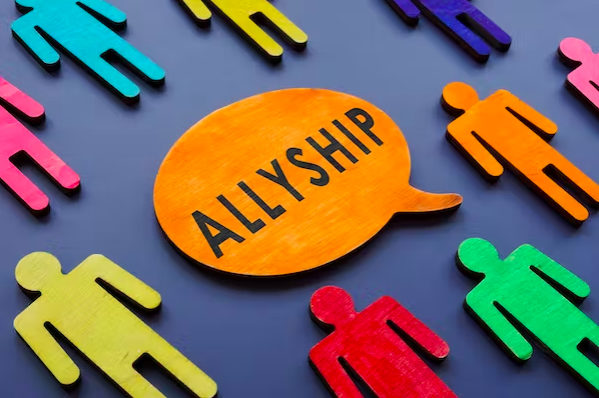Words by Alex Lewis
As a person coming from outside the LGBTQ+ community I feel as if it is necessary to discuss the issue of allyship. It is imperative to differentiate between public, performative allyship and private allyship as there is a stark difference between the two. A proportion of people who deem themselves to be allies are often as such in front of LGBTQ+ friends and on social media. However, once a friend or a partner displays any form of negative or aggressive LGBTQ+ sentiment, some are too quick to become neutral in the matter. To be a genuine ally, it is non-negotiable that a supportive stance should be held both in public and in private. For if supposed allies let detrimental remarks and views slide simply because they are close to that offending person or feel it would be awkward to intervene, it becomes acceptable behaviour. These prejudicial comments then circulate within friendship groups and become the social norm. This then gives rise to harmful views and behaviours directed towards the LGBTQ+ community. The only way to stop this kind of performative allyship is to begin to challenge those around you, should you find yourself in a situation where confrontation is needed. Of course, this is not an issue just at our university but something that likely occurs globally. We as a student body cannot viably stamp out this issue on a global scale, but we can certainly make a start by ensuring that this kind of behaviour stops at Sussex.
Picture Credits: Shutterstock/Vitalii Vodolazskyi

